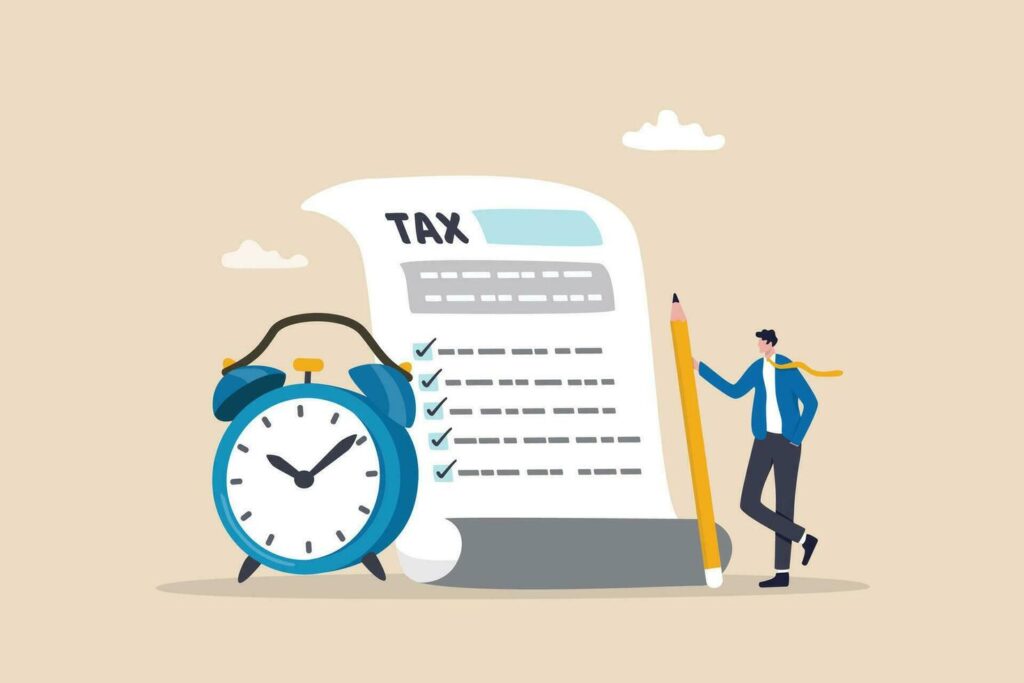Tax planning is an essential aspect of managing your finances and maximizing your wealth. By taking a proactive approach to tax planning, you can minimize your tax liability and keep more money in your pocket. In this article, we will explore the basics of tax planning, the importance of being proactive, and the strategies you can use to enhance your financial health. We will also address common challenges in tax planning and discuss the future of this ever-evolving field.
Understanding the Basics of Tax Planning
Tax planning involves analyzing your financial situation to identify ways to minimize your tax liability legally. It goes beyond simple tax preparation and involves best tax management company for strategic decisions and actions throughout the year. By understanding the tax code and staying up-to-date with changes, you can effectively manage your tax obligations and keep more of what you earn.
One of the key concepts in tax planning is tax efficiency. This refers to structuring your financial affairs in a way that reduces your tax burden. By carefully managing your income, deductions, and investments, you can optimize your tax situation and ensure that you are not paying more than you need to.

The Importance of Proactive Tax Planning
Proactive tax planning is crucial for maximizing your wealth. By taking a proactive approach, you can identify opportunities to minimize your tax liability and take advantage of legal tax-saving strategies. It allows you to stay ahead of changes in tax laws and make timely adjustments to your financial plan.
One of the main benefits of proactive tax planning is that it gives you greater control over your financial situation. Instead of passively reacting to tax situations, you can actively plan and make informed decisions based on your goals and circumstances. This level of control empowers you to optimize your finances and enhance your wealth over the long term.
Key Concepts in Tax Planning
There are several key concepts to understand when it comes to tax planning. Firstly, tax deductions play a significant role in reducing your taxable income. By taking advantage of deductions for expenses such as mortgage interest, medical expenses, and business-related costs, you can lower your overall tax liability.
Secondly, tax credits can have a substantial impact on your taxes. Unlike deductions, which reduce your taxable income, tax credits directly reduce the amount of tax you owe. By identifying and claiming eligible tax credits, you can significantly lower your tax bill.
Lastly, tax planning involves considering the timing of your income and deductions. By strategically timing your income and expenses, you can potentially shift income to lower tax brackets or take advantage of favorable deductions in specific years. This can result in substantial tax savings over time.
Another important concept in tax planning is the use of tax-deferred retirement accounts. Contributing to retirement accounts such as 401(k)s or IRAs can provide you with immediate tax benefits by reducing your taxable income. Additionally, the earnings in these accounts grow tax-deferred, meaning you won’t owe taxes on them until you withdraw the funds in retirement.
Furthermore, tax planning also involves understanding the impact of different types of investments on your tax liability. For example, investments held for longer than one year may qualify for lower long-term capital gains tax rates. By strategically choosing investments and holding periods, you can minimize the taxes you owe on investment gains.
In conclusion, tax planning is a vital aspect of managing your finances effectively. By understanding the key concepts and taking a proactive approach, you can optimize your tax situation and keep more of your hard-earned money. Whether it’s maximizing deductions, claiming tax credits, or strategically timing your income and expenses, tax planning can help you minimize your tax liability and achieve your financial goals.
The Role of Tax Planning in Wealth Enhancement
Tax planning is not only about minimizing your tax liability; it also plays a significant role in enhancing your overall wealth. By implementing effective tax planning strategies, you can optimize your financial health and increase your net worth. Let’s explore how tax planning impacts your financial well-being and its connection to wealth accumulation.
How Tax Planning Impacts Your Financial Health
Effective tax planning can have a positive impact on your financial health in various ways. Firstly, it allows you to allocate more money towards your financial goals, such as saving for retirement or investing in your business. By minimizing your tax liability, you free up additional funds that can be used to grow your wealth.
Secondly, tax planning can help you build a strong financial foundation. By effectively managing your tax obligations, you can avoid penalties and stay in good standing with the tax authorities. This not only protects your assets but also contributes to your overall financial stability.
Furthermore, tax planning can enable you to take advantage of investment opportunities. By strategically structuring your investments, you can minimize the impact of taxes on your investment returns. This potential tax deferral or reduction can significantly enhance your investment growth over time.

The Connection Between Tax Planning and Wealth Accumulation
Tax planning and wealth accumulation go hand in hand. When you minimize your tax liability, you have more disposable income available for saving, investing, and growing your wealth. By consistently implementing effective tax strategies, you can accelerate your wealth accumulation and achieve your financial goals faster.
Additionally, tax planning allows you to protect the wealth you have already accumulated. By implementing estate tax planning strategies, you can minimize the tax impact on your estate and ensure a smooth transfer of assets to your beneficiaries. This preserves your wealth and allows you to leave a lasting legacy.
Moreover, tax planning can also provide you with peace of mind. By proactively managing your tax obligations, you can reduce the stress and uncertainty associated with tax season. This allows you to focus on other aspects of your financial well-being and enjoy the fruits of your hard-earned wealth.
Furthermore, effective tax planning can lead to increased financial opportunities. By understanding the intricacies of the tax code and utilizing available deductions and credits, you can position yourself to take advantage of new investment ventures or business ventures. This can open doors to additional income streams and further enhance your wealth.
Strategies for Effective Tax Planning
Implementing effective tax planning strategies is essential to optimizing your financial health and enhancing your wealth. Let’s explore some key strategies that you can use to minimize your tax liability and make the most of your financial resources.
Planning for Income Tax
One of the most important aspects of tax planning is efficiently managing your income tax. This involves understanding your tax bracket, maximizing deductions, and exploring tax-efficient investment vehicles, such as retirement accounts and tax-advantaged savings plans. Additionally, staying organized and keeping accurate records can help simplify the tax filing process and ensure that you don’t miss out on any potential tax benefits.
Estate Tax Planning Strategies
Estate tax planning is essential for preserving your wealth and minimizing the tax burden on your heirs. It involves strategies such as setting up trusts, using gifting strategies, and taking advantage of exemptions and deductions. By working with estate planning professionals, you can develop a comprehensive plan that maximizes your estate’s tax efficiency and ensures your wishes are carried out.
Furthermore, it is important to consider the impact of changing tax laws on your tax planning strategies. Tax laws are subject to change, and staying informed about any updates or revisions can help you adapt your tax planning accordingly. Consulting with a tax professional who stays up-to-date with the latest tax regulations can provide valuable insights and guidance.
In addition to income tax and estate tax planning, it is worth exploring other areas of tax planning that can further optimize your financial situation. For example, understanding and utilizing tax credits can help reduce your tax liability. Tax credits are deductions directly applied to your tax bill, providing a dollar-for-dollar reduction in the amount you owe. Researching and identifying tax credits that you may be eligible for can significantly impact your overall tax planning strategy.
Moreover, taking advantage of tax-deferred investment options can also contribute to effective tax planning. By investing in tax-deferred accounts such as individual retirement accounts (IRAs) or 401(k) plans, you can defer paying taxes on your contributions and any potential earnings until you withdraw the funds in retirement when you may be in a lower tax bracket.
Overall, effective tax planning involves a comprehensive approach that considers various aspects of your financial situation. By implementing strategies to manage income tax, estate tax, and exploring other areas of tax planning, you can optimize your tax liability, preserve your wealth, and make the most of your financial resources.

Overcoming Common Tax Planning Challenges
Despite the benefits of tax planning, there are common challenges that individuals may face when trying to optimize their tax situation. Let’s explore some of these challenges and how you can overcome them to achieve your financial goals.
Avoiding Common Tax Planning Mistakes
One common mistake in tax planning is failing to stay informed about changes in tax laws. Tax regulations can change frequently, and staying updated is crucial for effective tax planning. By working with a knowledgeable tax advisor and regularly educating yourself, you can avoid making costly mistakes and ensure that your tax plan remains in line with current regulations.
Addressing Tax Planning Misconceptions
There are several misconceptions surrounding tax planning that can hinder individuals from taking full advantage of available strategies. For example, some people may assume that tax planning is only for the wealthy or that it involves engaging in questionable practices. In reality, tax planning is relevant for individuals at all income levels, and it focuses on legally optimizing your tax situation. By understanding the true nature of tax planning, you can overcome these misconceptions and harness its potential to enhance your financial well-being.
The Future of Tax Planning
As technology continues to advance and the world evolves, the field of tax planning will also undergo changes. Let’s explore some emerging trends and how technology is revolutionizing the way we approach tax planning.
Emerging Trends in Tax Planning
One of the emerging trends in tax planning is the increased use of data analytics and artificial intelligence. These technologies enable tax advisors to analyze vast amounts of financial data quickly and accurately, leading to more informed and efficient tax planning strategies. Additionally, cloud-based solutions are becoming more prevalent, allowing for secure storage and real-time access to financial information, further streamlining the tax planning process.
How Technology is Changing Tax Planning
Technology is transforming tax planning by automating mundane tasks and improving accuracy. Software applications and online platforms streamline the tax preparation process, reducing the likelihood of errors and saving time. Moreover, online collaboration tools facilitate effective communication between tax advisors and clients, ensuring that tax planning remains a collaborative and responsive process.
In conclusion, proactive tax planning is an invaluable tool for enhancing your financial well-being and maximizing your wealth. By understanding the basics of tax planning, recognizing its importance, and implementing effective strategies, you can optimize your financial health and achieve your long-term financial goals. Despite the challenges and misconceptions surrounding tax planning, staying informed and being proactive can empower you to overcome obstacles and seize opportunities. And as technology continues to evolve, the future of tax planning holds even greater potential to revolutionize the way we manage our taxes and enhance our wealth.
More to read: How a Sydney Financial Advisor Can Help You Achieve Your Goals

